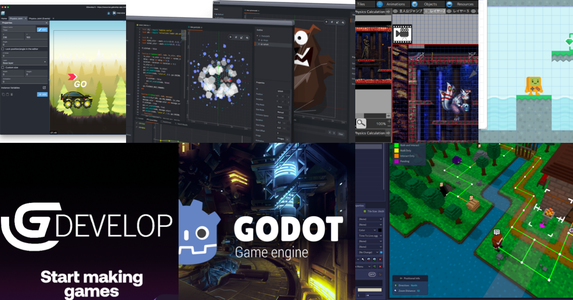 ,
,This post is a response to Unity’s heartbreaking announcement that they will… charge developers relentlessly for distributing their games? I struggle to frame exactly what they are doing because Unity’s decision is so bizzarely resentful toward their huge developer base that trusted them. You can read this for context…
I’ve done a lot of writing curating and covering tools, and showcasing alternatives to popular ones. I even have a collection on itch.io keeping track of things that are on that platform: https://itch.io/c/235488/cool-tools
For myself, it is an imperative to always be aware of alternatives!
The biggest lesson I learned from the decades of being able to persist as a digital artist working with interactivity (now game design, I guess) is that being platform agnostic is the best thing you can do for yourself.
You need to rely on yourself as much as possible.
That’s my number one rule.
Come to terms with the ephemeral nature of your own work because it has no “real” capitalist value in the grand scheme of things.
Games are viewed as expendable things that quickly expire. The value of IP is weighed by how much money it can make. To what indefinite extent it can be milked… That’s the reality of this place.
Any of us will spend years of our life pouring uncounted hours of work into something we are passionate about. The resulting game might not live longer than five years.
It’s hard to come to terms with the fact that you might work on something longer than it will be relevant.
In the end, you are responsible for ensuring your art’s relevance.
The pursuit of platform agnosticism, in this light, is a way of reclaiming power constantly lost to the game industry’s drive to maximize profits.
The tool is only as great as your ability to follow through on ideas and make it work. That talent to be flexible, to fit your ideas into the ecosystem of any tool (IDE, development environment, platform…) is something that can’t be taken away from you.
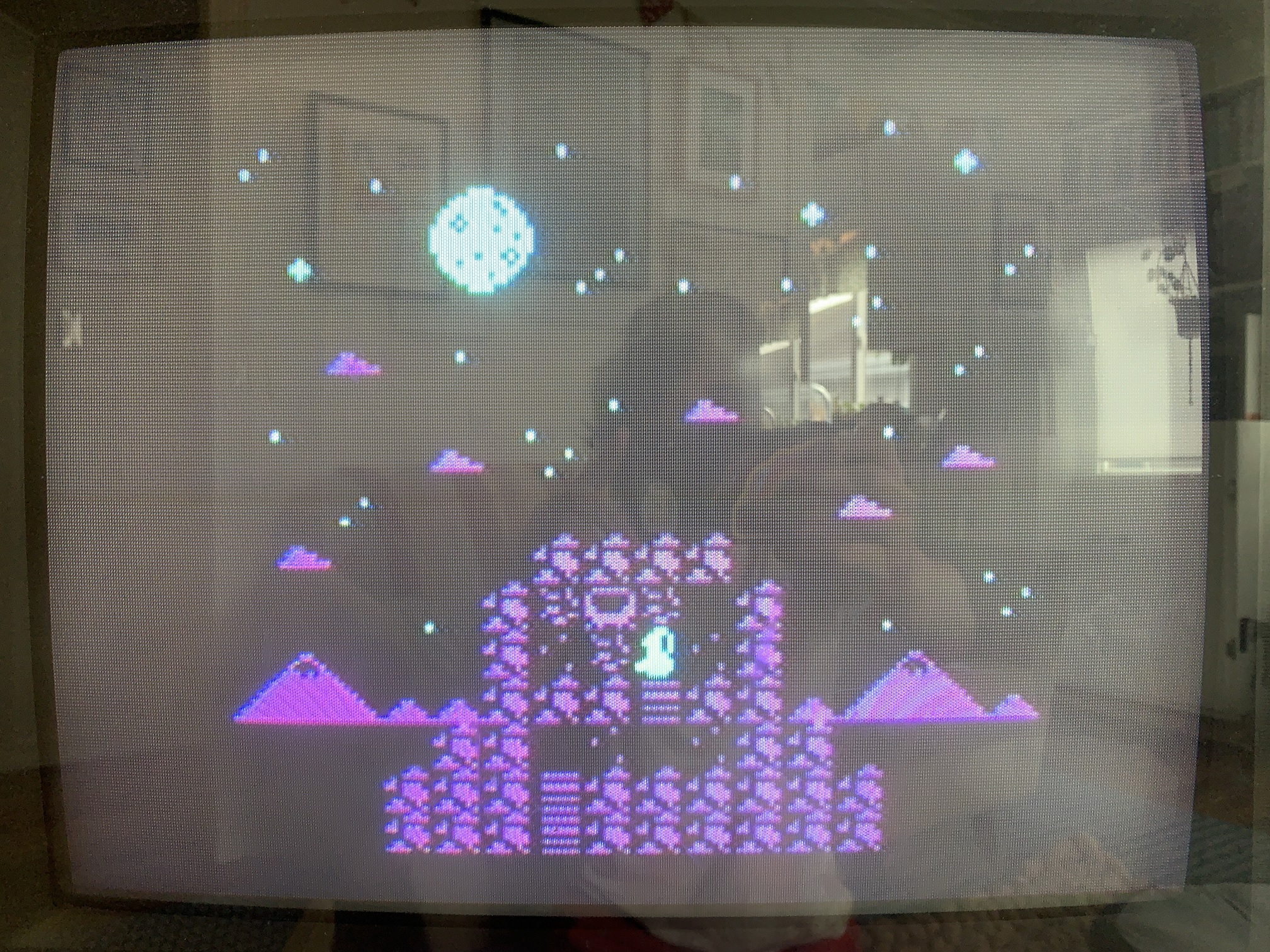
– Image via some thoughts on bitsybox and game preservation
It is a hard reality specific to this field. I could go on and on about how, if corporations really cared, they would actually walk their talk.
I am tired of reading exciting sales pitches with the reality that “this thing will go to shit” looming behind it.
The amount of trust that it takes as an artist to invest years into learning something inside and out, just to have the company that owns it pulling the plug on it, is exhausting.
If these corporations cared, basic necessities like “preservation” would be built into our dependence on them.
I find it a powerful statement against our corporate overlords that a game engine like Bitsy, as small as it is, being maintained by just one person, will prioritize preservation (read “some thoughts on bitsybox and game preservation”)…. but a company like Adobe, with its massive amount of resources and teams, can’t lift a finger to help preserve something as fundamental to internet history as Flash.
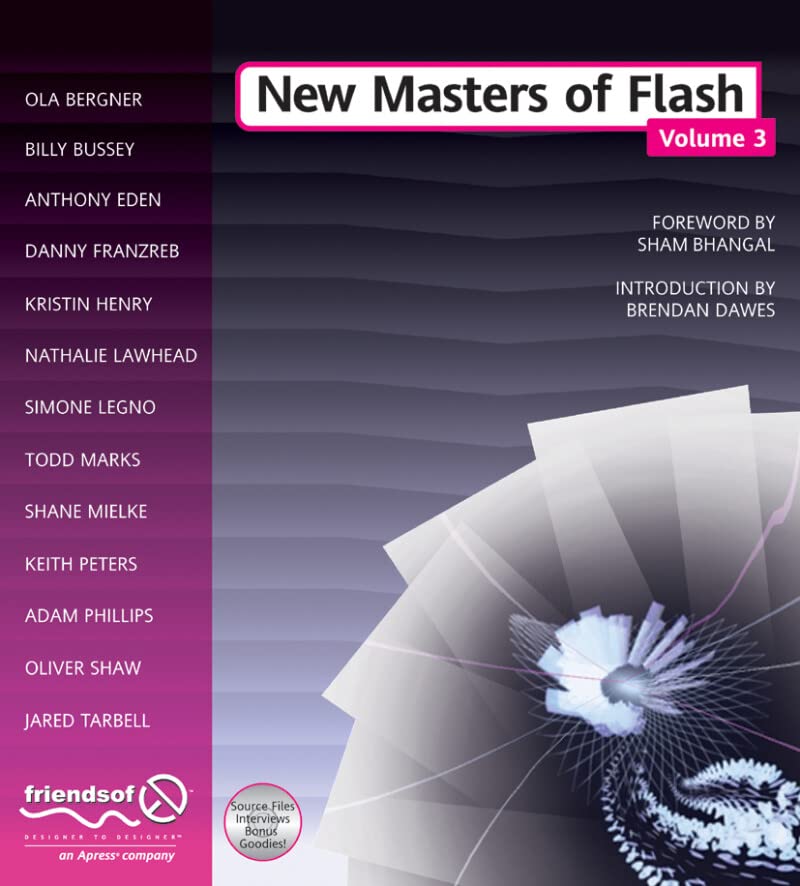
– New Masters of Flash: Volume 3 Paperback – July 22, 2004
A long time ago I was part of a book called New Masters of Flash (Volume 3) by Friends of Ed. The philosophy behind the book was that there are “masters” of the tool. The same as you have masters in any other real world craft. People that know the thing intimately, push the thing to the limits, and pursue perfection within the craft of the tool. It alluded to an understanding that the software is a type of craft, and encouraged a sense of pride. It was all so new and exciting! We thought that Flash would live forever. It was everywhere.
Today… just the idea that a single tool would exist long enough to foster pride in a sense of mastery of it is almost a foreign concept to me.
We just can’t. Tech culture keeps disrupting itself. Too much to even care anymore.
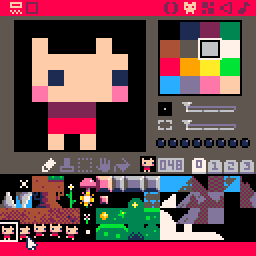
It is encouraging to me that you can look at small initiatives like Pico-8, other fantasy consoles (see this very long list) such as TIC-80, GBStudio, or no-code alternatives like GDevelop… and see so much more care put into really being different. More than you would find coming out of corporations with the resources to actually make a difference.
I used to use Unity as an example for indie game’s dependence on a single tool. As a Flash developer it seemed like a disaster waiting to happen. I was often told I’m catastrophizing when I pointed out that our dependence on Unity bodes unwell for the future of altgames. What would happen to altgames if Unity disappeared?
It happened to Flash.
Why expect different this time around?
It keeps happening.
Unity’s hostility toward their user base, reflected in these decisions, is another reminder that we need to get real about who we place our trust in.
I can’t wrap my head around how John Riccitiello can call Unity’s most creative users “fucking idiots” for not being more exploitative with their monetization practices. Somehow creating art for the sake of sharing and creating art is a foreign concept to the people responsible for driving the future of the engine so many artists depend on.
When Riccitiello’s quote blew up on social media it was “walked back”. People defended him, as per usual with these things… reflective of the accountability issue in the game industry. If we just has a little accountability things could be so different.
There is no accountability. This is obvious in all fields… From game journalism, to execs making these decisions.
Either way, everyone else pays for it.
This is even better demonstrated by Reddit thread: Unity silently removed their Github repo to track license changes, then updated their license to remove the clause that lets you use the TOS from the version you shipped with, then insists games already shipped need to pay the new fees.
My hope for this post is to impart some hope.
I’ve been making this stuff for a very long time.
There is a large world of alternatives out there, many of them deserving a lot more attention. Each offer their own vibrant communities, support, philosophies, and mentalities surrounding making a game.
If you look at “Last 28 days / Monthly ranking of repos in this collection by stars, pull requests, issues. Historical Ranking by Popularity.”
You get a small glimpse of just how much is out there.
See also this bar chart race for a good laugh.
Yuri Sizov said it best on Twitter:
“I think that’s an important sentiment. We can’t offer you a “better Unity”. We can only offer you (better) Godot.
And the same is true for any other alternative. The market is full of different tools and approaches, no two alike. Give them a try and see what makes them unique.”
As a “former” Flash developer that often still builds things with AIR and ActionScript, I understand that there can never really be a “Unity alternative”.
AIR is currently being built and maintained by Harman. You can still use the SDK with Adobe Animate, just like you’ve always been able to do. This continues to be one of my favorite workflows. I would be devastated if I lost it.
Like Flash, there is only one Unity. Each tool has a history that built it, communities that poured their undying support, passion, and philosophies into it… When that tool dies we lose a specific type of mastery. We lose all the mentalities, philosophies, communities, and vision that went into it.
This is a constantly shifting landscape.
Each tool is different, some will get you closer than others to how your workflow in Unity existed.
Choosing a tool is about committing to a certain workflow, and understanding what compromises will have to be made because some support things out of the box better than others.
The current best alternatives to Unity are either Unreal or Godot.
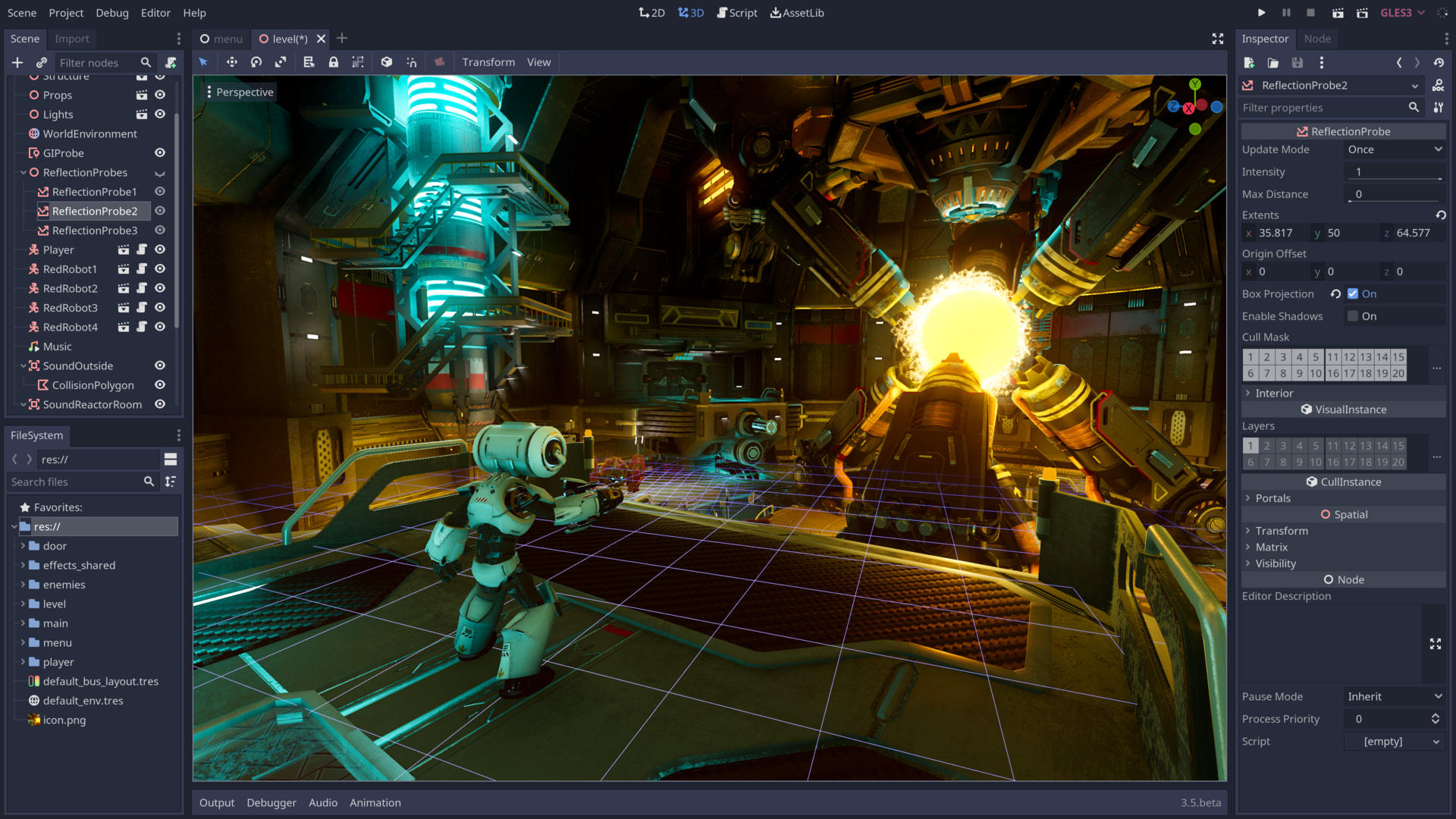
* Godot
“The Godot Engine is a free, all-in-one, cross-platform game engine that makes it easy for you to create 2D and 3D games.”
Godot is free and open source. The fact that it does not have a corporate entity in charge of dictating its future should be a big selling point right now.
I adore Unreal, and am quite enjoying my time with it… but Unity’s blatant bad decision making is a stark reminder that that can quickly change.
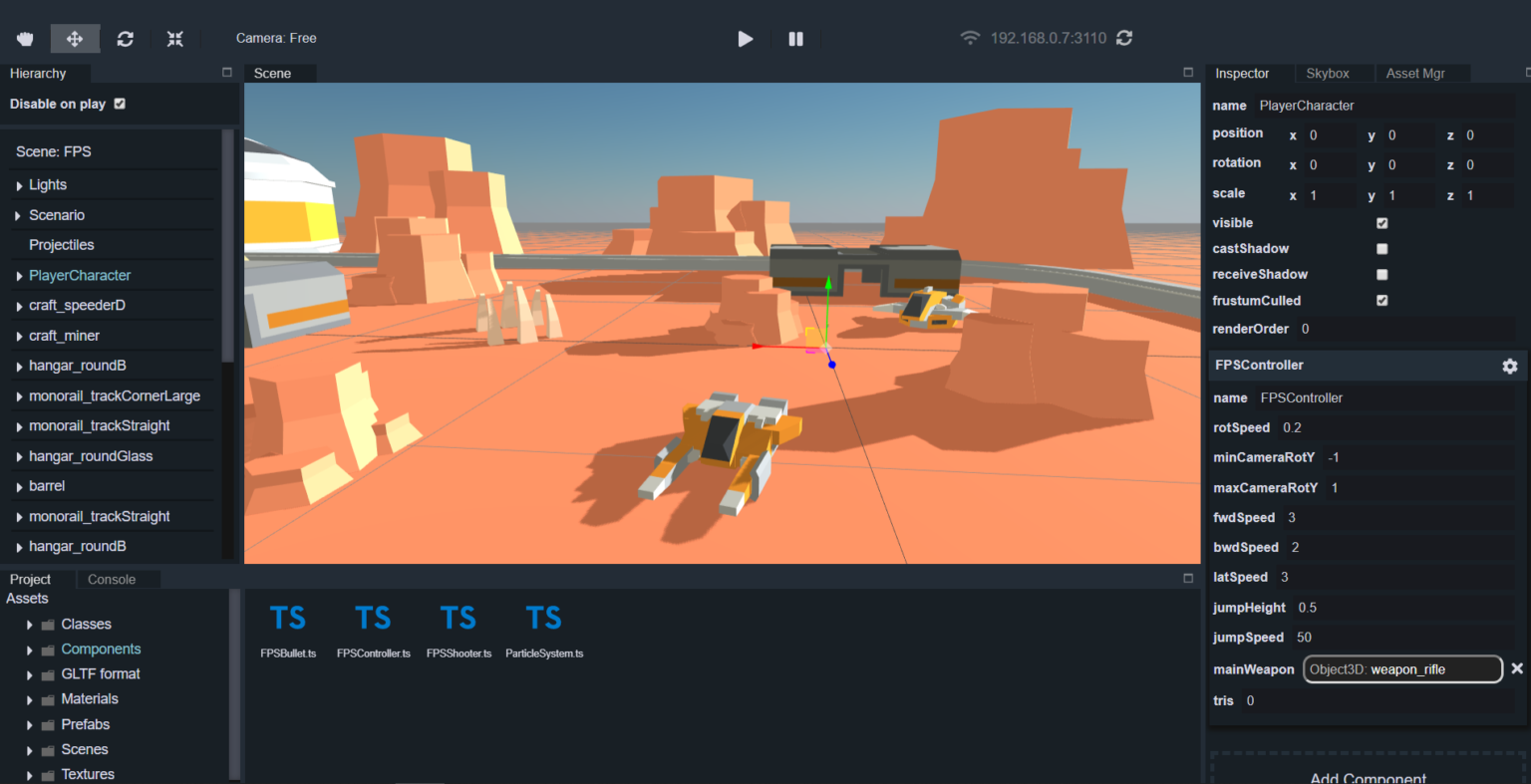
Another great alternative that I need to highlight is Rogue Engine.
It deserves a lot more attention. It is a Unity3D-like environment for creating web games and apps. It’s powered by three.js. The IDE is very similar to Unity, and it offers a lot of other features. It’s specific to creating for the web. I think it does this one specific thing better than Unity.
Other alternatives that get you in a similar ballpark for making browser games are Phaser.io, melonJS, and especially GDevelop.

